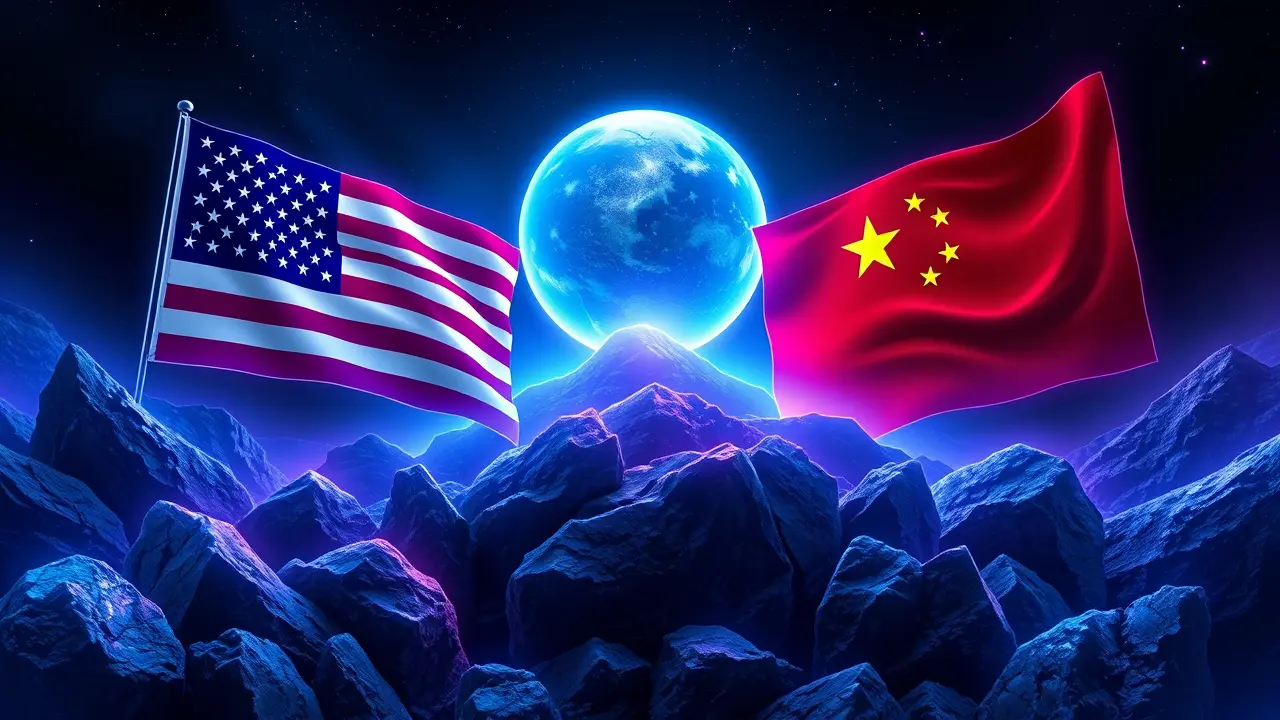
Politicssanctions & tradeTrade Deals
White House Announces US-China Trade Deal on Rare Earths.
RO
Robert Hayes
18 hours ago7 min read
In a development that echoes the grand strategic accords of a bygone era, the White House has unfurled the substantive details of a pivotal trade agreement between the United States and the People's Republic of China, focusing squarely on the geopolitically charged domain of rare earth elements. This accord, forged between the administrations of U.S. President Donald Trump and Chinese President Xi Jinping, is far more than a mere commercial transaction; it represents a critical de-escalation in a protracted economic cold war, one whose battlegrounds have spanned tariffs, technology, and now, the very minerals that underpin modern civilization.The strategic importance of rare earths—a group of seventeen metallic elements essential for manufacturing everything from the smartphones in our pockets and the electric vehicles on our roads to the sophisticated guidance systems in advanced fighter jets and missile defense networks—cannot be overstated. For decades, China has wielded a near-monopolistic control over the global supply chain, responsible for approximately 80% of rare earth imports to the United States, a leverage point it has not been shy to test, most notably during a 2010 diplomatic spat with Japan when it abruptly slashed exports, sending global markets into a frenzy and starkly illustrating the West's vulnerability.This new deal, therefore, is a calculated maneuver to rewire a critical dependency, reminiscent of historical resource pacts that sought to secure national interests, such as post-World War II oil agreements that shaped the latter half of the twentieth century. The specifics of the arrangement, as detailed by administration officials, are expected to involve guaranteed quotas of Chinese exports to U.S. manufacturers, coupled with significant American investment in domestic mining and processing capabilities, a sector that atrophied over the past thirty years due to environmental concerns and cheaper overseas production.This dual-pronged approach aims to create a stable, short-term supply line while simultaneously rebuilding a sovereign industrial base, a lesson hard-learned from the supply chain disruptions of the recent pandemic. Analysts from the Center for Strategic and International Studies have been quick to note that while this deal provides immediate relief to sectors like automotive, renewable energy, and defense, its long-term success hinges on Washington's ability to navigate the complex environmental and regulatory landscape of domestic rare earth projects, a challenge not unlike the industrial mobilization efforts of the past.Furthermore, the agreement implicitly acknowledges China's enduring dominance in processing technology, where it still holds a commanding lead, suggesting that true supply chain independence remains a distant, albeit now more vigorously pursued, goal. The geopolitical ramifications are profound; by securing a more predictable flow of these critical materials, the United States gains a measure of insulation against future coercive economic tactics, thereby strengthening its hand in broader negotiations concerning technology transfer, intellectual property, and security issues in the Indo-Pacific.However, critics, including voices from the Atlantic Council, warn that this could simply be a temporary truce, a tactical pause that allows Beijing to consolidate its technological advantages while the U. S.plays catch-up in a resource-intensive sector. The deal also sends ripples across the global stage, prompting allied nations in Europe and Japan to reassess their own strategic mineral policies, potentially catalyzing a new era of resource nationalism and international consortiums aimed at diversifying supply away from any single hegemonic power. In the final analysis, the White House's announcement is not merely a trade bulletin; it is a chapter in the unfolding great power competition of the twenty-first century, a deliberate move to fortify economic resilience and secure the foundational elements of national security and technological supremacy for the decades to come.
#White House
#trade deal
#Donald Trump
#Xi Jinping
#rare earth minerals
#sanctions
#diplomacy
#featured
Stay Informed. Act Smarter.
Get weekly highlights, major headlines, and expert insights — then put your knowledge to work in our live prediction markets.
© 2025 Outpoll Service LTD. All rights reserved.